Sarah sang us a song we had never heard before as we sat on the porch, insects buzzing in the dark, the rustle of cows in the grasses. It was called "Sumer Is Icumen in," and she taught it to us all, even Papa, who sang as if he had never stopped singing.
“Sumer is icumen in,
Lhude sing cuccu!”
"What is sumer?" asked Caleb. He said it "soomer," the way Sarah had said it.
"Summer," said Papa and Sarah at the same time. Caleb and I looked at each other. Summer was coming.
"Tomorrow," said Sarah, "I want to see the sheep. You know, I've never touched one."
- Sarah, Plain and Tall by Patricia MacLachlan, Chapter 4
Happy Midsummer, friends.
I have already shared a look at our daily rhythms in wintertime, and I wanted to write a similar journal for summer. What we do, eat, and prioritize is different from season to season. The first wild raspberries and the bright, warm evenings remind me how sweet it is to wait for something, and then to cherish it, and milk it for all it’s worth, while knowing it will not last long.
Today is Midsummer’s Eve. According to Anglo-Saxon culture, the day we’ve lately dubbed the first of summer is actually considered the middle of the season. I learned this when I read Eleanor Parker’s fascinating book Winters in the World last winter when the world was still covered in white. According to their calendar, Candlemas (February 2nd) marked the beginning of Spring, and harvest time — what is now autumn — lasted from August until October. Very different from how we reckon the seasons today. Yet, when I read this, the Old English seasons seemed to resonate with me. Who isn’t ready to embrace Springtime as early as February, snow and wind or no?
We live in an apartment on a property belonging to my husband’s family. This has been our home these first three years of our life together, and it has been a profound blessing to live in a place where we can grow vegetables and keep some animals. Professionally, my husband is a painter and carpenter, and I work as a court reporter. I moonlight as a writer, and down in my bones I am a farmer. He moonlights as many things, as he is a man of diverse talents and interests. Together, we hold a deep affection for a healthy and thriving natural ecology. We try to steward this little patch here as well as we can. And in return, the land gives us much.
7:00 a.m. -ish
I wake up with my husband’s alarm. For all my dreams of waking up early on summer mornings, treading the dew-covered grass in bare feet and starting a fire on which to cook our breakfast, I am much more of a sleepyhead in summer than I am in winter. I put the kettle on for my tea — nettle leaf and red raspberry, every day — and jump on the rebounder for a few minutes to get my lymph flowing. Anthony does his usual 20 minutes of red light therapy.
Tea in hand, I go outside to greet the rabbits and check their water. Both little mamas have a nest of babies, now a week old. They are glossy and black, with little pointy ears and eyes still closed to the world. In a few more days they will open their eyes, and then we will blink, and suddenly their shiny black coats will be turning to gray.
This is our third round of baby rabbits. So far, not much has thwarted our little rabbit enterprise. We did have one case of ear mites, which cleared up pretty quickly with a natural treatment of coconut oil and tea tree. Rabbits are for the most part very low-input, low-risk livestock. I say this, knowing that all manner of troubles are likely to come our way down the line if we continue doing this long-term. But for now, I am enjoying taking care of these simple and darling creatures.
7:30 a.m.
I pack lunch for my husband and myself. He is going to do some pressure washing for a client, and I am headed downtown. Lately, on days I find myself home, I have been trying to cook larger cuts of meat and prepare things that can easily be packed and assembled for quick suppers if I should come home late. The night before this I cooked a whole pile of skirt steak, so that is my lunch, with some raw cheese and blackberry jam — a strange-sounding combination, but actually quite delicious.
We make our coffee, each how we like it. We eat breakfast; we talk; we linger. I love mornings. But we can’t linger for long, and by 8:00 he is out the door.
8:40 a.m.
I am on my way into the city. This commute has become my podcast time, which does make it something to look forward to...although I would much rather remain barefoot in my garden, and I eagerly await the day I will (Lord willing) do much more of that and less working in the city. On this day I listened to the latest episode from one of my favorites, Ancestral Kitchen, all about packing food when traveling. I have learned so much from Alison and Andrea over several years now — funny how far-away people can start to feel like neighbors or friends after hearing their voices for so long! They bring such helpful resources to people in a fun and relational way.
9:30 a.m.
There is one particular building downtown which is home to all the biggest law offices, and this is where I can be found most often. The friendly security folks know me by name now. “Where are you going today, Emma?” I give them the name of the law office, and they tell me which elevator to get on. Fancy. I am spirited up to the 29th floor, where the receptionist shows me the way to the conference room. I have been here many times before, and I never know what to expect.
But today is a good job. Before the witness arrives, the attorneys from both sides talk amicably. “Why does everyone have to be so confrontational these days?” says the older gentleman to the younger woman. “There’s no need.” And the day proceeds in like fashion — a simple, straightforward deposition, with few objections and no one raising their voice. During breaks, I chat with the witness about her adult children and her mother-in-law’s five marriages. We break for lunch, and soon after we wrap up for the day.
1:30 p.m.
Since it is still so early, I know what I ought to do. I text my husband — what do you want at Costco?
While I am not a fan of actually going to Costco, I must appreciate having one so close by. We try to source much of our food locally, for health as well as economical reasons. But this is difficult to do in the modern age, and in our area the farmers who are raising nutritious food are still few and far between, and so have a corner on the market. I cannot afford to buy butter for $30 per pound. As far as big-box stores go, in my experience, Costco has the most organic options for the most affordable prices. (And yes, we do buy our butter there!)
It also physically pains me to buy things in tiny amounts. When I moved away to go to college and went grocery shopping by myself for the first time, I could not believe butter only came in a one-pound box! There is an attitude of abundance that is cultivated when one grows up around a culture of farming and cooking at home. You don’t buy much in packages, but you use a lot of ingredients. A well-stocked pantry becomes a symbol of wealth — as it truly is.
Add to this larger-than-average families, and the tiny packages and high prices of processed food seem absurd. The most practical way to feed a large family nourishing food is to take the responsibility of production back into the family’s own sphere. We have no children yet. But already I can see that the best way to feed our family the food we believe in (and enjoy) will be to grow it, raise it, pluck it, harvest it, and cook it ourselves. And what beauty and fun there is to be found in the process.
3:00 p.m.
Home at last, I haul my bounty inside and take this opportunity to clear out the fridge of lingering random things, of which there are always some. Small jars of leftover chimichurri, juice from canned peaches, scraps to give to the dog — these things must be dealt with, or they will take over. There is a rabbit already cooked for supper, so I pull the meat off the bones and get the remains of the carcass going in a stock pot with some veg for broth. Orange peels from making juice go into jars of homemade apple peel vinegar to steep for cleaner. This is how our kitchen runs, little bit by little bit. Always something is steeping, soaking, fermenting, dehydrating. It is always working, even when we are frolicking about elsewhere.
I fry some cornbread in butter and spread it with more blackberry jam for a snack, then go outside to meet the sunshine. I always take with me a basket, for whatever I might find.
It has been raining, and raining, and raining for what feels like months, and the gardens are green and lovely — if a little jungle-like. We have two gardens, a no-till garden in its fourth year and a bigger garden which we tilled last spring to put in the strawberry patch. The no-till garden has become more of the perennial herb and flower garden, while the tilled garden has turned out to be where most of the real production happens.
Having the two to compare has been an interesting lesson. The no-till garden has far less weed pressure, but some things don’t seem to grow as well or as quickly. Meanwhile, in the tilled garden, weeds and rye from last winter’s cover crop would take over in a matter of days if I let them, especially with all this rain. I believe in the principles of no-till, but I also believe there is a time and place for gentle tillage. For instance, in our case, with the larger garden, we did not want to invest in a long-term strategy like no-till, where the benefits sometimes take years to see, when it is not our plan to still be here in several years’ time. The soil is soft and willing, but as a result we have the eager grasses and weeds to reckon with.
This time of year I am bringing in strawberries, herbs, leeks, and radishes. Before I fill my basket, I sit down to drink a cup of elderflower tea and read some of the latest Wise Traditions issue. We are starting a local Weston A. Price chapter, so I am trying to make a point of keeping up on the literature they put out — which is handy, because I want to read it anyway, and this gives me another reason to prioritize learning about “food, farming, and the healing arts”!
5:00 p.m.
Though the sun feels glorious, I gather what I need for supper and head inside. I picked up milk two days ago, so I still have two half-gallons I can skim cream from. I get some ice cream going in the ice cream maker, tidy up my dirty dishes, and put together a very simple salad of arugula, cooked barley, rabbit, sauteed onions, and lots of fresh herbs.
This is maybe the second time in my life I have ever made a salad. Ordinary salads of raw vegetables have never seemed appetizing in the least to me. Even the word salad makes me cringe. But lately I’ve been inspired by a few friends to take the concept of a salad and just build it around things we actually like to eat. My friend Liz makes hearty “salads” of roasted vegetables, cooked grains, and delicious homemade dressings. Add to that some protein, and it’s basically a stir fry, only lighter and fresher. And so very simple, customizable, and colorful — everything one looks for in a summer meal.
After ice cream and strawberries, we go outside to do the evening chores. “Chores” is a glorified term for this, which basically consists of filling the rabbits’ water and checking for eggs in the chicken coop. Anthony works on some household things while I storm the garden with my hoe and my garden gloves. It’s the thunder and the darkening sky, foretelling rain once again, that eventually drive me inside.
8:00 p.m.
Despite my efforts to tidy as I go, I’ve left the kitchen in a disarray of dirty pots and pans. Time to strain my broth and put it in the freezer, and definitely time for another cup of tea. This album has been my evening clean-up companion. Worshipping in the home with beautiful music makes all the difference in where my thoughts find their rest. While the rain falls and the tree branches flail outside, our little home is snug and golden and quiet, and the words of the songs are filling my mind with true things.
10:00 p.m.
After some cleaning up, watching some basketball highlights, and doing some other things, it’s well nigh time for bed. By bedtime, inside our house is almost completely dark. We like it this way to help natural melatonin production and guard circadian rhythm. No bright screens (without blue light blocking glasses) or overhead lights. Dark and quiet signals rest — and at the end of another ordinary day, this is what we are given.
Our life is small, and simple. I can feel very guilty about this sometimes, especially when hearing about wars and violence in other places, and disasters happening to other people. It feels almost as if I should be ashamed for taking delight in a lighted candle, or a blooming flower, or a tiny wriggling baby rabbit when there is so much chaos in other parts of the world — or that I ought to give my attention to those things instead of the beauty that is alive around us.
I recently took a deposition of a woman who has lived an extremely traumatic life. Imagine the worst things that can happen to a woman. It wasn’t the first time I have heard such things and thought, but for the grace of God, that could be me… I believe that oftentimes situations like this woman’s are entirely avoidable, but it makes all the difference what kind of life you are living, what kind of people surround you. She grew up in a culture and environment that predisposed her to seek out danger and pain — a social environment that I, a simple farm girl, know next to nothing about and likely cannot imagine. Even still — that life could have been mine.
Beauty and goodness should not be seen as simple and dull. Nor should innocence, which is so mocked in our world that celebrates trauma. I thought of this woman again on this evening as I was working in our garden, my bare feet covered in dirt and my ears and eyes open to all the sounds and wonders around me — bees buzzing on milkweed flowers, wild rabbits darting in and out of the brush, and the laughter of the little girls next door. All these things, grounding my body and anchoring my mind to the natural, the real, the simple.
My thought lately when it comes to my family’s role in the great wild world has been this: Think Little. Wendell Berry wrote an essay by this title, in which he describes how the popular advice to “think big” has become so detrimental to the family economy, to social systems, to the health of the earth, etc. He proposes that a good solution might be to instead “think little”: start with your own home, your own backyard, and your own family. For after all, these are the things you have been given.
In the words of Laura Ingalls Wilder:
“The real things haven’t changed. It is still best to be honest and truthful; to make the most of what we have; to be happy with simple pleasures; and have courage when things go wrong.”
I wonder if this is a particular trait of the feminine — that practical awareness of survival needs, like food and rest, and deep appreciation for the most basic provisions. Thanks be to God for simple pleasures and undeserved gifts.
What do your days look like in June? What have you been extra grateful for lately?





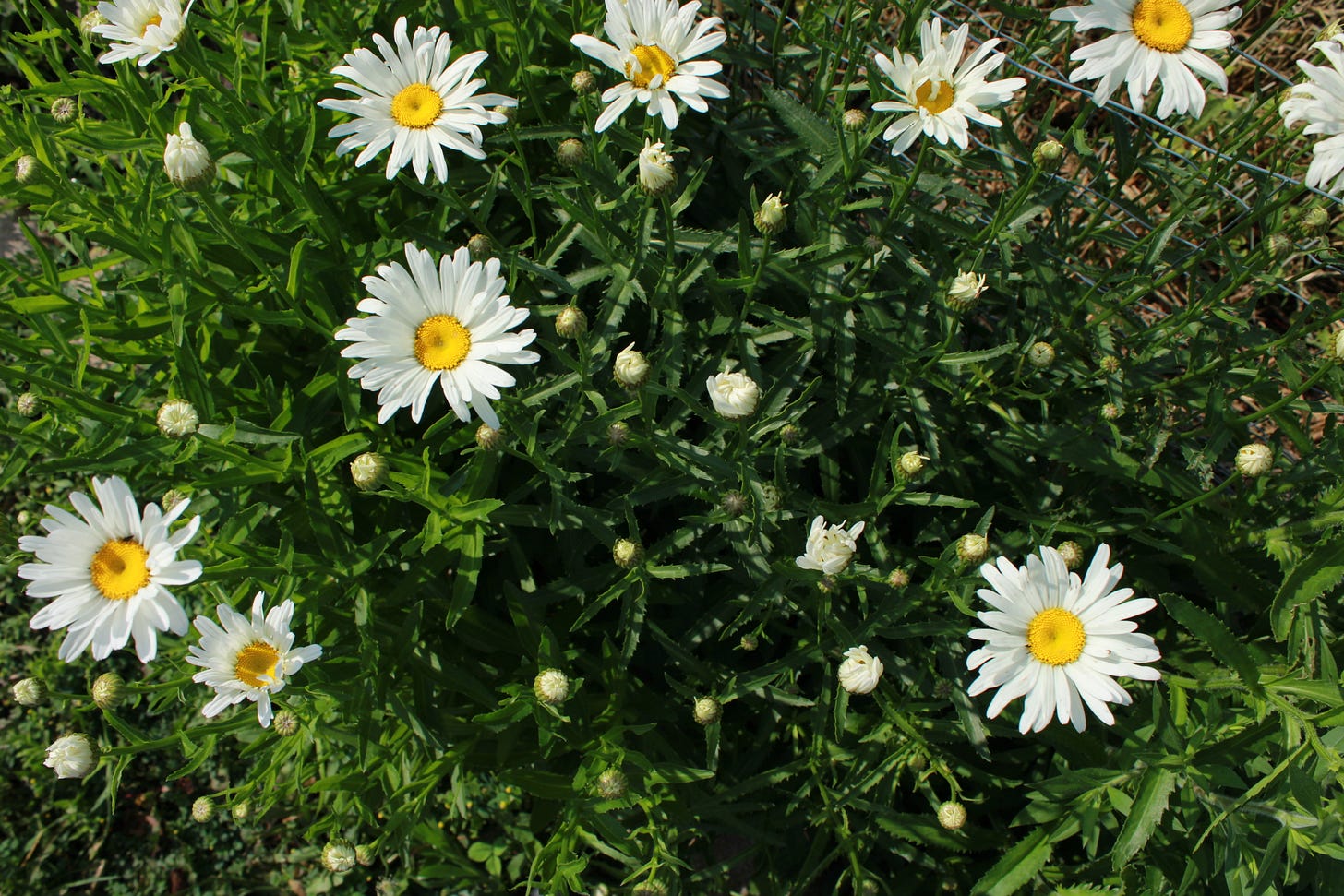
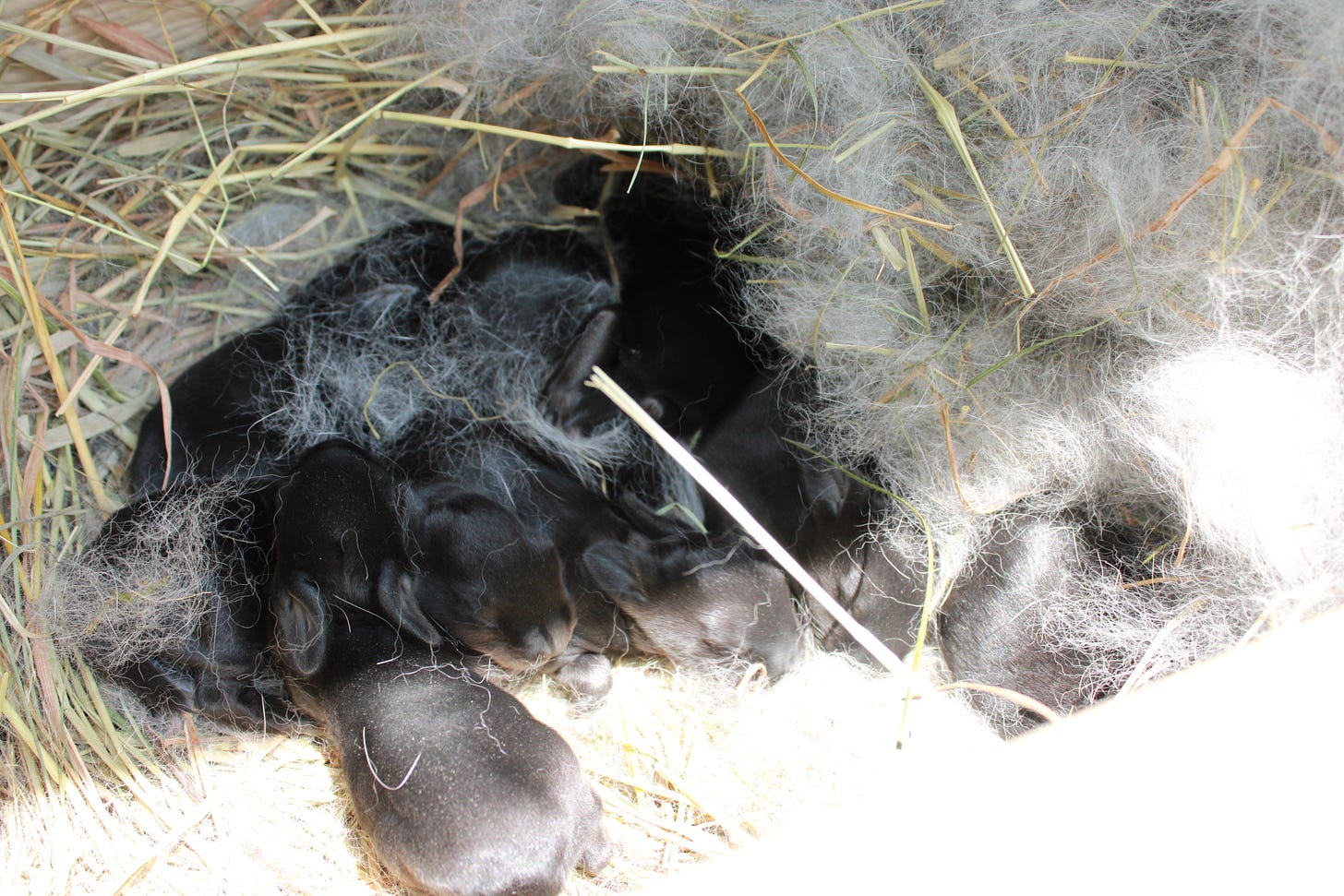
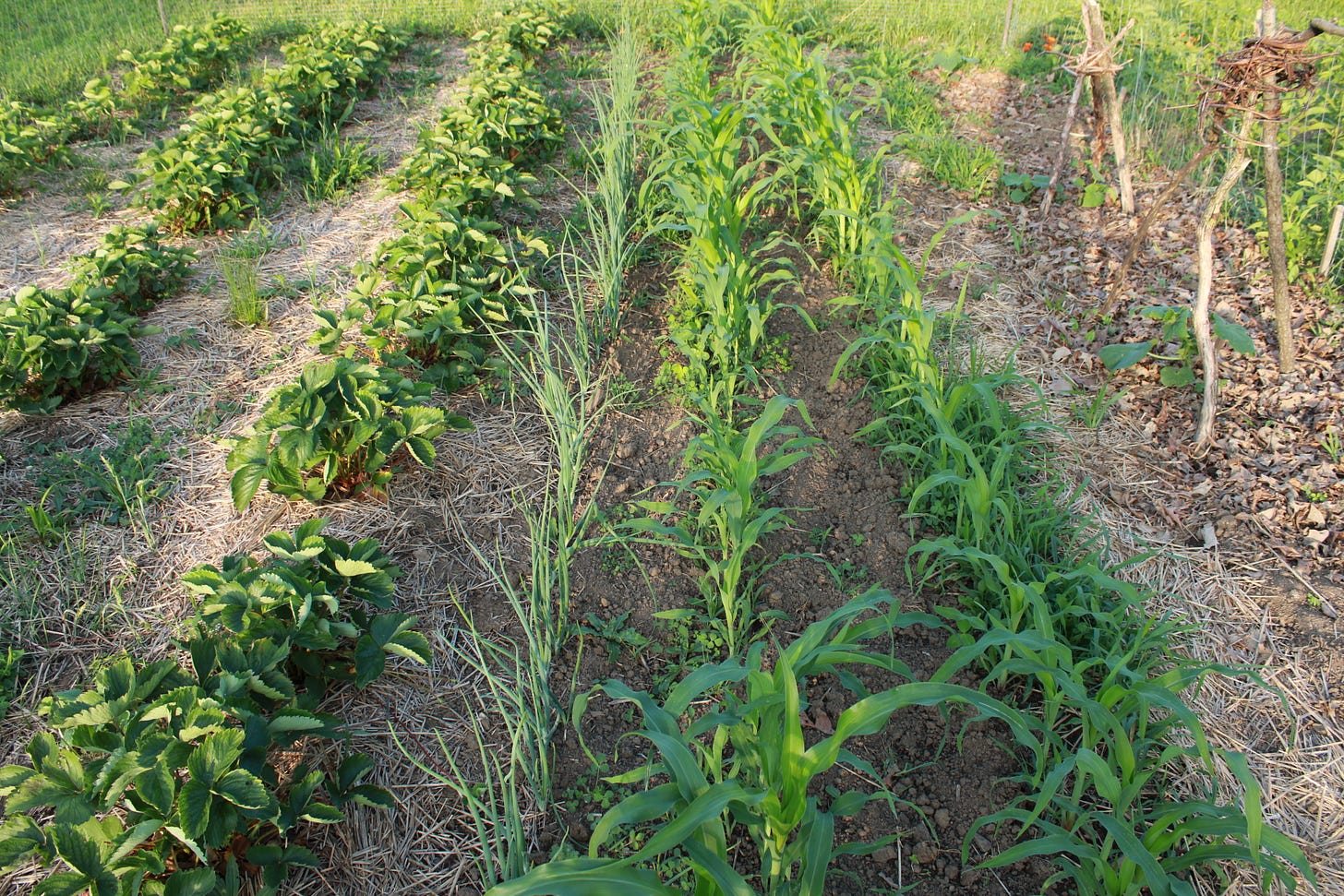
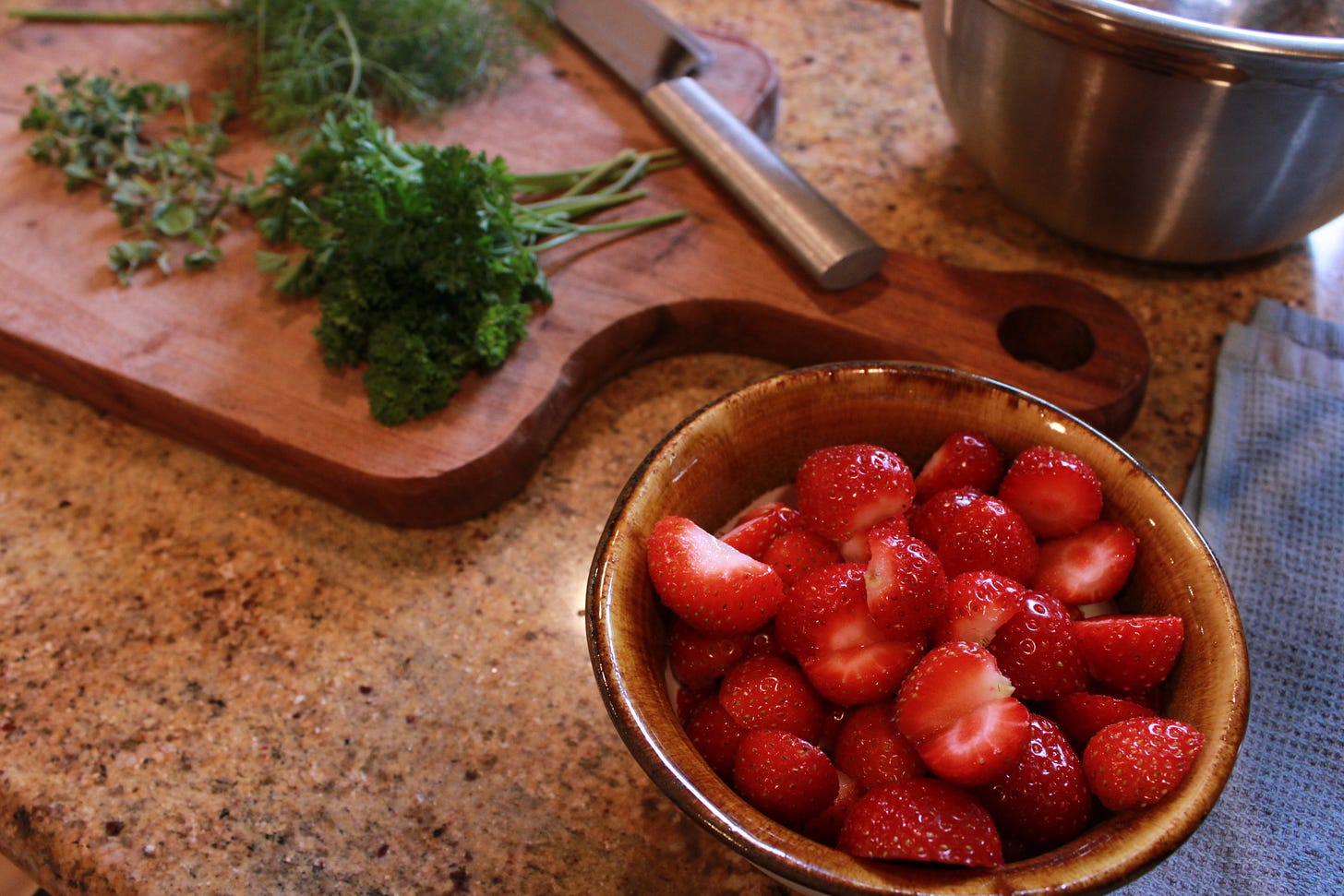
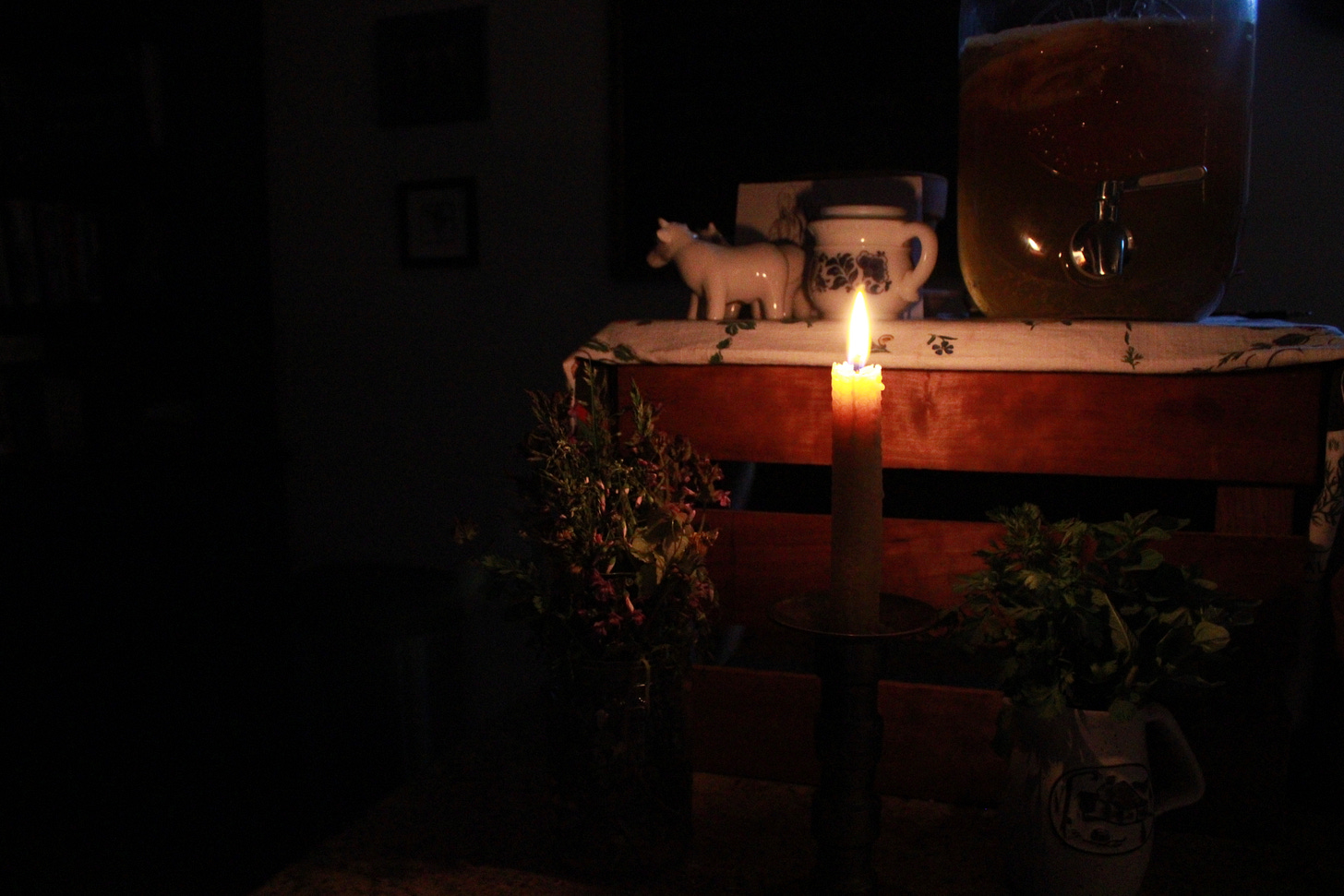
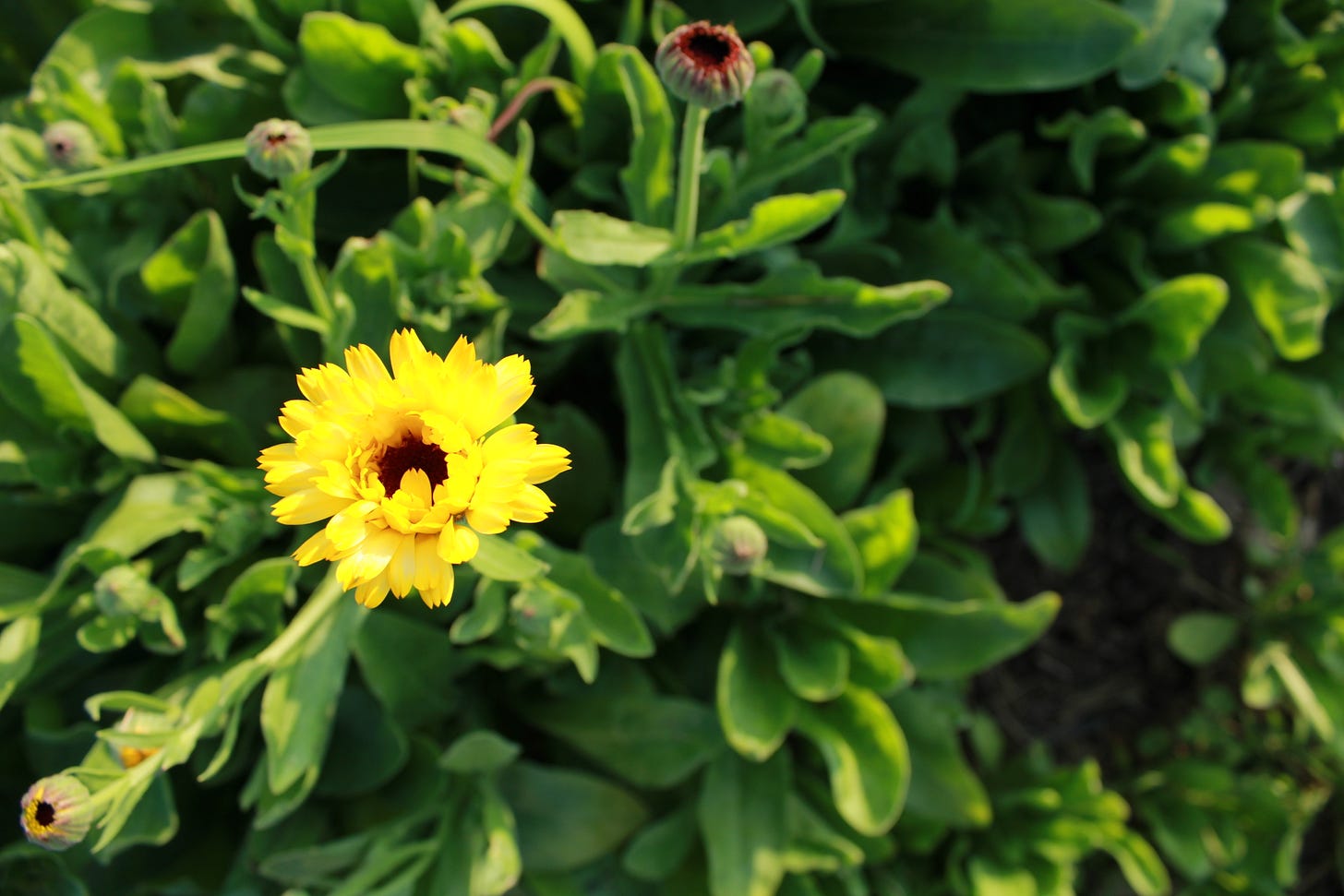

Emma, I was thoroughly enjoying this peek at your lovely life, and then I saw your mention of Ancestral Kitchen and squealed! I consider Alison and Andrea friends - I've been on their podcast, Alison has been on mine, and I'm a member of their lovely community as well. Nice to meet you more formally; I've followed you here for a few months at least.
You have a beautiful life!
"Beauty and goodness should not be seen as simple and dull. Nor should innocence, which is so mocked in our world that celebrates trauma."
This bit really resonated. I've finally made peace with that now that I have little ones. This simple life filled with innocence, goodness and beauty is so precious, especially to them. They don't want much, just time outside and lots of time at home with mama.